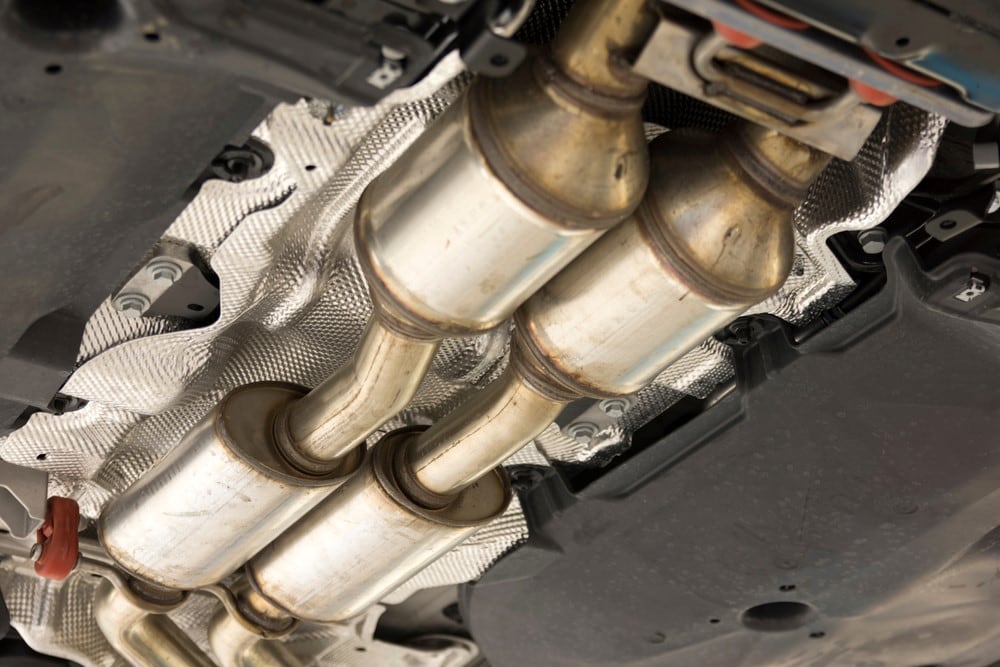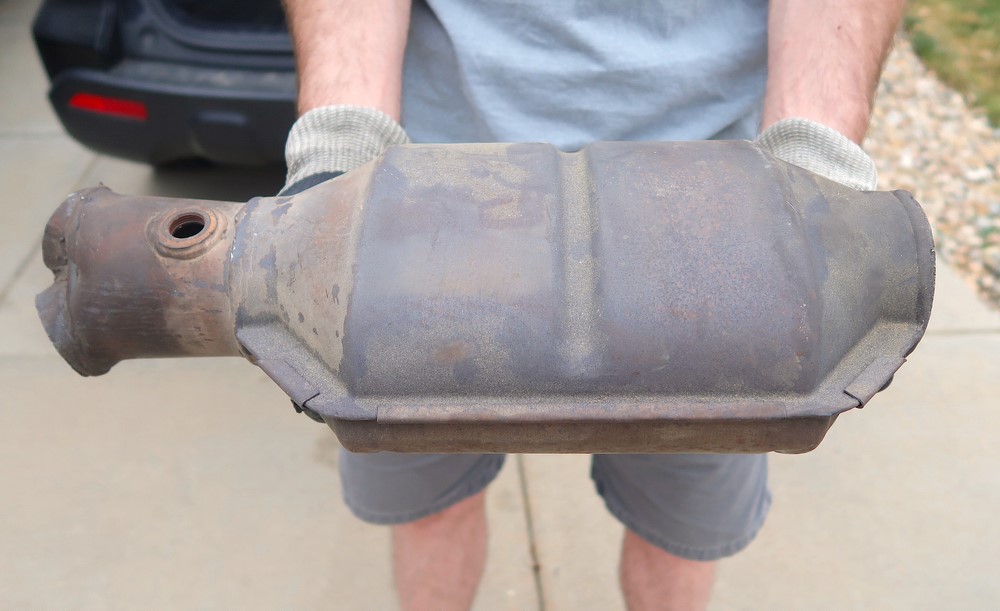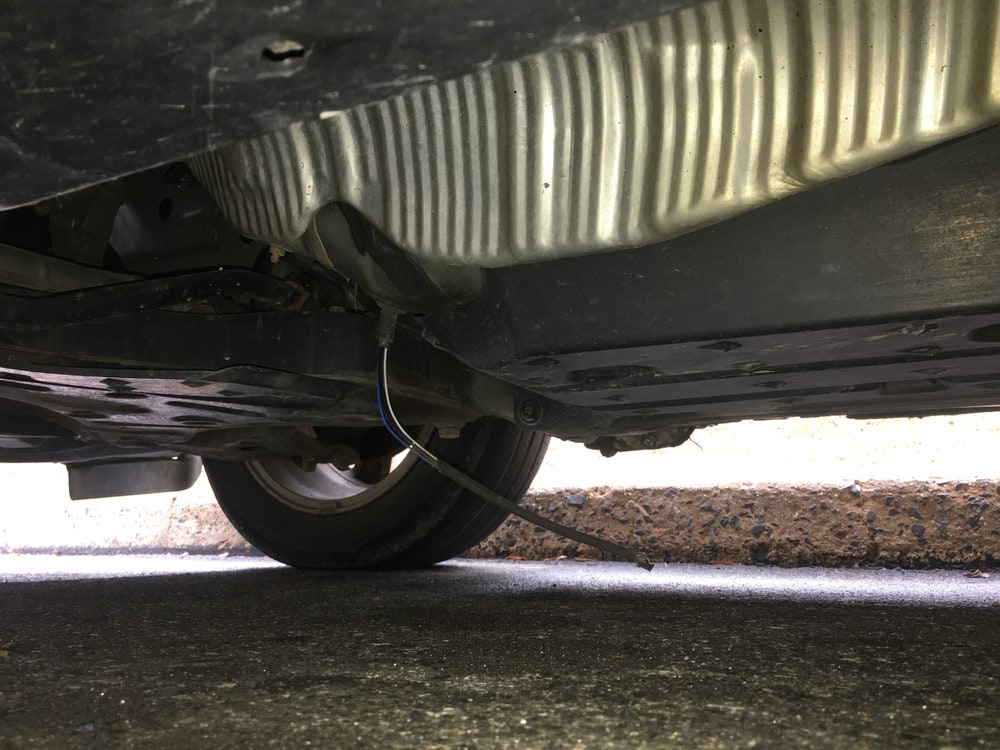
In the late 1800s, Joplin was known for its mineral-rich resources. By the 20th century, our little town grew to become the center of the “tri-state district” (that being Oklahoma, Kansas, and Missouri) and the official lead- and zinc-mining capital of the world.
All things being cyclical, it figures we’d come back ‘round to our mineral-rich roots, except this time it’s platinum, palladium, and rhodium – the precious metals found in catalytic converters – that's making Joplin famous (or infamous). In December of 2021, following a recent trend of catalytic converter thefts, Joplin police recovered nearly 100 stolen catalytic converters from a local woman’s home. Their estimated value? Over $60,000.
Catalytic converter thieves aren’t exclusive to Jasper County, however. In fact, it’s become a big problem across the country, with national insurance claims of stolen catalytic converters growing a flabbergasting 350% from 2020 to 2021. Almost a dozen states, including Missouri, have clamped down on the sale of catalytic converters to prevent thieves from thieving. Despite these tougher laws, police are still struggling to deter thieves.
The ball, as they say, may be in your court now. If you’ve recently had your catalytic converter stolen, or if you’re worried about someone taking a saw to your vehicle while you shop, work or sleep, here’s what you need to know to protect yourself.
Why Steal Catalytic Converters?

If someone stole your catalytic converter, know that it’s probably not a personal vendetta against you. Like everything, it all boils down to money.
Across the board, prices for precious metals have increased substantially since 2020. Per ounce, for example, rhodium prices climbed from approximately $2,000 to over $25,000 in early 2021, thanks to a variety of factors, least of which include global supply chain problems. These converters are then sold to and by scrap yards and recycling centers.
It’s not just money, though – it's quick money. With the right tools, stealing a catalytic converter can be done in the blink of an eye. Experienced thieves can cut out exhaust emission control devices in as little as a minute without even setting off an alarm. The popularity of larger SUVs and trucks only makes their job easier, as they can slide underneath the vehicle without a lift.
10 Ways to Prevent Catalytic Converter Theft
Unfortunately, if a thief really likes the look of your converter, they’re going to take it. You can take some steps to reduce that risk, though.- Don’t leave your car parked in your driveway or on the street. Thieves can cut out your converter while you sleep.
- If you can’t park in a garage, be sure to park in a well-lit area or install motion-sensor lights.
- Etch your license plate number or VIN onto the catalytic converter. If yours is ever stolen and subsequently recovered by the police, you could get it back. A converter with an etched number may also deter thieves outright, as it may be more difficult to sell it.
- Install cameras overlooking where you park. If they connect to your home security system, your security company may be able to inform the police in real-time.
- Get an anti-theft device installed. Metal shields or cages can be bolted over the converter, making it much more difficult and time-consuming for thieves to steal it. You can do this yourself if you’re handy with a welder, though most people should ask an auto repair shop or muffler store. These devices can cost anywhere from $100 to over $800.
- Paint your catalytic converter a bright color. Thieves are less likely to steal a hot-pink converter since it will be hard to find a buyer.
- Invest in a motion-sensor dashcam with night vision. If you can’t stop thieves, you can at least get their faces on camera.
- Adjust the sensitivity of your car alarm. This isn’t always an option, and it isn’t necessarily a great idea, but it is something to try.
- Check your auto insurance. Make sure your comprehensive insurance plan covers stolen auto parts.
- Avoid owning a vehicle that thieves like. This includes big trucks, large SUVs, low-emission vehicles, and any type of Toyota Prius. (Priuses are common targets of car part thieves because they have two catalytic converters.) Call a local muffler repair shop and ask what cars have been targeted in your area.
What You Should Do if Your Catalytic Converter is Stolen
- Contact the police and file a report.
- Take photos of any damage you can see.
- Contact a car repair shop to get a quote over the phone or after an in-person inspection. Be sure to ask them if driving without a catalytic converter will damage your vehicle further; if so, get a tow. Otherwise, carefully (and noisily) drive it to the shop.
- Contact your insurance company and start your claim.
- Ask your mechanic to install an anti-theft cage or cover to prevent future theft.
- Whatever you do, don’t opt for a cheap catalytic converter as a replacement! They’re noisy and aren’t the same quality as an OEM part.
How Can You Tell if Your Catalytic Converter was Stolen?

The most obvious sign that your catalytic converter was taken is noise. Without one, your vehicle will sound extremely loud on start-up, and even louder when accelerating.
You may also notice exhaust smells inside the cabin, as well as sputtering when shifting gears.
Visually, you’ll see a large hole where your exhaust used to be. You may also see cut pipes and metal shavings on the ground.
How Much Does It Cost to Replace a Catalytic Converter?
For victims, the price to replace a stolen converter can easily be over $1,000, depending on the model and if thieves damaged any other car components. Insurance usually covers the repairs, though you’ll be on the hook for deductibles and will have to wait to get the work done, which can take a while due to those pesky supply chain problems.If you need an estimate for a new catalytic converter in Joplin, we’d be happy to help. Call Roper Honda at (417) 625-0800 to speak with one of our specialists and auto repair technicians.